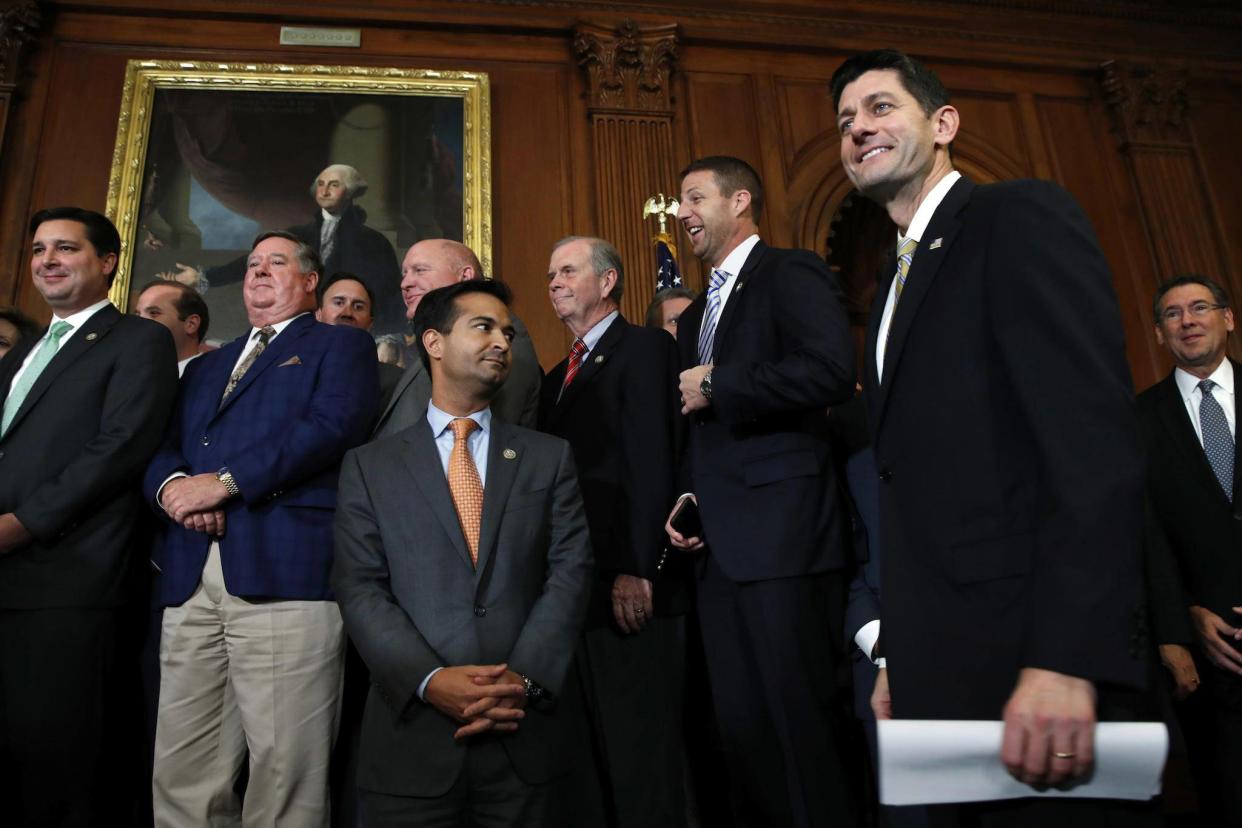Republican tax plan would increase taxes for graduate students by almost 400%

Republicans in the House of Representatives have approved a tax proposal that includes a giant tax hike on graduate students.
Tamar Oostrom, currently earning her PhD in economics at the Massachusetts Institute of Technology, has been crunching the numbers to determine how the bill – which includes more than $1 trillion in tax cuts for US corporations – would affect the taxes paid by graduate students.
“This bill would increase our tax by 300 or 400 percent. I think it's absolutely crazy,” Ms Oostrom told NPR. “The past week this is what I've been talking about with other graduate students, with classmates. I think we're all shocked.”
Graduate students like Ms Oostrom are often able to afford advanced degrees by earning tuition waivers. In these cases, students will work for the university by teaching classes or conducting research in exchange for a modest stipend and free tuition.
According to the American Council on Education, roughly 145,000 graduate students receive this kind of tuition reduction.
That cost of tuition at MIT is technically about $50,000, even though a lot of student’s don’t have to pay it. Under the House Republican’s tax proposal, these graduate students would have to report that tuition forgiveness as income.
Ryan Hill, a fourth-year PhD student at MIT, told NPR that he already pays taxes on his $30,000 stipend.
But, adding in the value of his free tuition, he said, would require him to pay taxes as if he made $80,000 a year – a huge difference for him and his wife, who works part time while also caring for their new baby.
“I wish we didn't have to stress about money as much as we already do," Mr Hill said. “It's been already very hard to just emotionally get through this time of life because we have to be so frugal.”
The House on Thursday, in a 227-205 vote, met the threshold it needed to pass the Republican proposal. But tax legislation in the Senate faces a more uncertain future.
There is also an ocean of differences between the Senate’s and House’s versions that would need to be reconciled before a final tax measure could head to the President’s desk to be signed into law.

 Yahoo News
Yahoo News 
